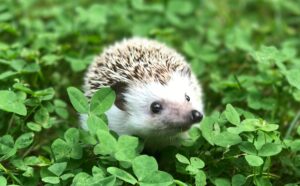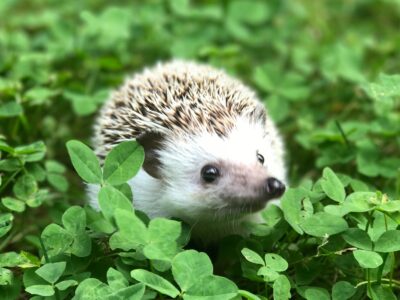When it comes to maintaining a flourishing vegetable garden, many gardeners focus on protecting their crops from potential threats posed by wildlife. However, it’s important to recognize that not all animals are adversaries to your garden. In fact, some wild creatures can play a beneficial role in promoting a healthy ecosystem and enhancing the productivity of your vegetable patch.
Wild Animals in the Vegetable Garden
In this article, we will explore a variety of wild animals that can be valuable allies in your gardening journey, providing valuable services such as pollination, pest control, and soil enrichment.
Bees and Pollinators
Bees and other pollinators are essential for the successful reproduction of many vegetable plants. These industrious insects transfer pollen from male flower parts to female flower parts, enabling fruit and vegetable production. Encouraging pollinators in your garden can be as simple as planting a variety of flowering plants and avoiding the use of harmful pesticides that may harm these beneficial insects.
Birds
Birds, particularly insectivorous species like wrens, chickadees, and titmice, can be valuable allies in controlling garden pests. These feathered friends feast on harmful insects, such as caterpillars, aphids, and beetles, helping to keep their populations in check. To attract birds to your garden, provide them with food sources like bird feeders or by planting native trees and shrubs that offer berries and seeds. You can also consider installing birdhouses or nesting boxes to provide shelter for these helpful creatures.
Frogs and Toads
Amphibians, such as frogs and toads, are voracious predators of garden pests. They prey on insects, slugs, and snails, helping to reduce populations that can damage your vegetable plants. Creating a welcoming habitat for amphibians can be achieved by incorporating a small pond or water feature in your garden. These creatures require a water source for breeding and shelter, and they will repay you by keeping your garden free from unwanted pests.
Ladybugs
Ladybugs, also known as ladybirds or lady beetles, are well-known for their role in natural pest control. Both adult ladybugs and their larvae feed on aphids, mites, and other soft-bodied insects that can harm your vegetable plants. To attract ladybugs, plant pollen and nectar-rich flowers like daisies, marigolds, and yarrow. You can also purchase ladybugs from garden suppliers and release them in your garden to enhance their population.
Earthworms
Earthworms may not be visible during the day, but they play a crucial role in maintaining healthy soil. These underground workers burrow through the soil, improving its structure and allowing for better water infiltration and root penetration. They also break down organic matter, releasing valuable nutrients that nourish your vegetable plants. To encourage earthworms, add organic matter like compost and leaf mulch to your garden beds. Avoid using synthetic fertilizers and pesticides that can harm these beneficial soil-dwellers.
Conclusion
Embracing the presence of certain wild animals in your vegetable garden can lead to a more balanced and harmonious ecosystem. By recognizing the positive contributions of creatures like bees, birds, frogs, ladybugs, and earthworms, you can harness the power of nature to your advantage. Providing suitable habitats, food sources, and minimizing the use of harmful chemicals are all ways to attract and support these beneficial wildlife species.
Creating a garden that welcomes and nurtures these animals not only helps to naturally control pests but also enhances the overall health and productivity of your vegetable plants. So, next time you spot a buzzing bee or a chirping bird in your garden, remember that they are not only visitors but valuable partners in your gardening journey. By working together with nature, you can create a vibrant and thriving vegetable garden that benefits both you and the wild creatures that call it home.


 Individualized Learning
Individualized Learning
Leave a Reply